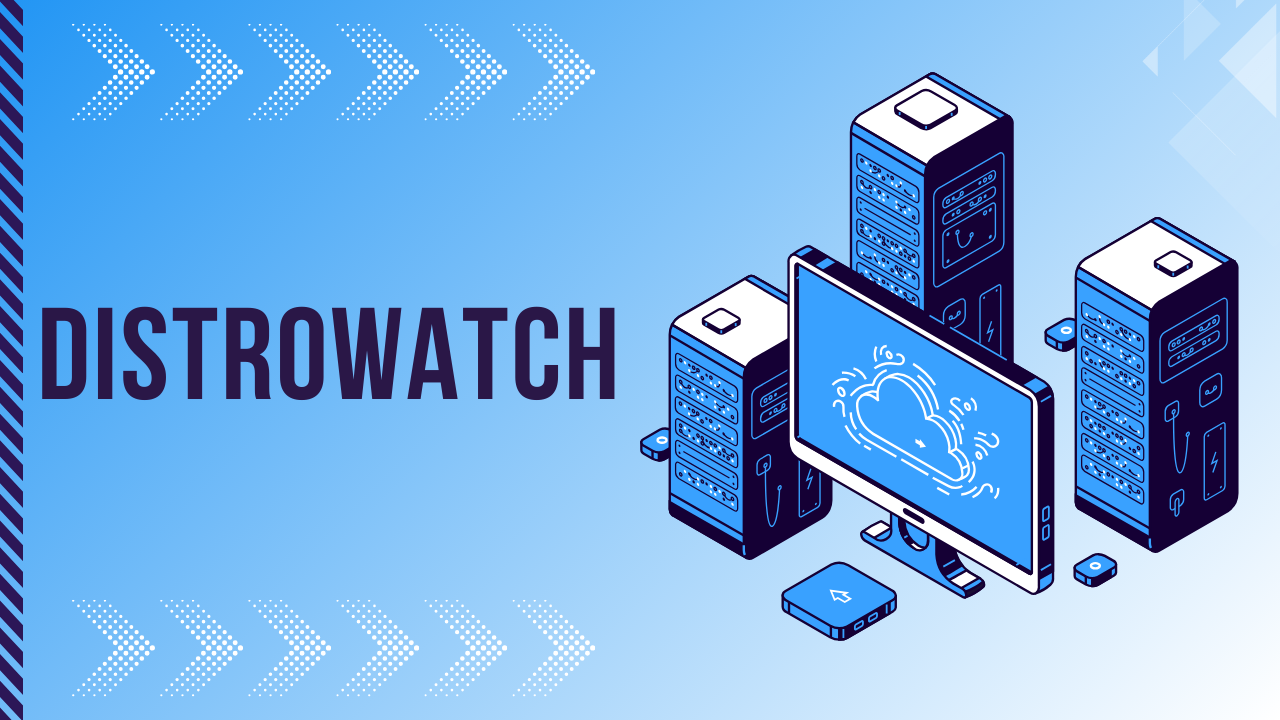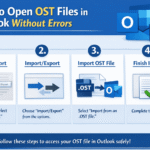A Guide to 20 Alternatives of DistroWatch
- 1 Why should we choose Distrowatch?
- 2 Our top 20 alternatives of Distrowatch are as follows:
- 2.1 Mint Linux
- 2.2 SUSE Studio
- 2.3 SmartWindows.app
- 2.4 Ubuntu
- 2.5 CrunchBang Linux
- 2.6 Haiku
- 2.7 Fuduntu
- 2.8 Lubuntu
- 2.9 Xubuntu
- 2.10 DeLicate Linux
- 2.11 Enso OS
- 2.12 SUSE Linux Enterprise
- 2.13 OpenMandriva Lx
- 2.14 Regolith Linux
- 2.15 TinyCore
- 2.16 Pearl OS
- 2.17 Plop Linux
- 2.18 FatDog64o
- 2.19 KolibriOS
- 2.20 DebianDog
- 3 Which one is the best?
- 4 Methodology
Since May 31, 2001, DistroWatch has been a leading Linux and open-source Unix-like OS news website. This Ladislav Bodnar-maintained site lists Linux distributions, rankings, and news. DistroWatch Weekly (DWW), created by Bodnar, is fascinating. It summarises weekly distribution news. In 2017, DistroWatch gave $47,739 to finance open-source software projects and offer vital information. The site extensively analyses Linux, BSD, and Solaris software versions and package collections.
Minix, RISC OS, ReactOS, Haiku, KolibriOS, and KolibriOS are Distrowatch’s “Other OS” distributions. DistroWatch’s page rankings joke about website popularity, not quality, use, or market share. The company disclaimer says such. DistroWatch’s page-hit data can show what people are interested in, but PC World can’t predict how visitors will use or like the site. Ladislav Bodnar’s passion makes DistroWatch crucial for open-source distribution aficionados. Its dedication to open-source projects and detailed rankings and comparison charts make it essential in Linux and open-source communities.
Why should we choose Distrowatch?
DistroWatch keeps Linux and open-source OS fans current. DistroWatch contains news, rankings, and basic information about hundreds of Linux distributions. This thorough coverage allows Users to compare and evaluate distributions depending on their interests, needs, and technology. Distribution of news and developments in Distrowatch Weekly (DWW) enhances the service. Newsletter subscribers receive open-source news. The ecosystem-focused DistroWatch donation initiative supports open-source software projects. Through DistroWatch, users support several open-source projects. This website’s simple rating system, large comparison charts, and well-maintained database increase confidence. From Linux newbies to experienced users trying new distributions, DistroWatch provides something for everyone interested in free code. The platform makes it easy to compare and understand options.
A Brief History
Distrowatch began on May 31, 2001, when GNU/Linux and other systems were less popular, but I saw more users adopting it. Linux (1991) was created recently, although other systems have been launched for a longer time. It has fulfilled its goal of providing comprehensive information in one location. Since then, Ladislav Bodnar has maintained it. Much has changed since then. It started with a simple table comparing the prices, versions, release dates, etc., of the five major Linux distributions.
It gradually added material and functionality. Over time, it has expanded beyond GNU/Linux to include BSD, Solaris, and derivatives. They are now the community’s most significant database for free software and open-source initiatives. Website analytics were a before-and-after for the project, according to Ladislay Bodnar. Bodnar sought to build an honest basis on current distros to assist users in picking. Also includes links to each distro’s official download page. Other websites and experts utilise his distribution popularity numbers since they were so popular. Based on Internet visits per entry. That way, you know the annual pattern.
Why have we chosen these alternatives?
These DistroWatch alternatives are chosen based on popularity, user-friendliness, feature diversity, and use case representation. Each option is a Linux distribution with unique features that meet open-source community needs. To give customers a complete picture, the suggested alternatives include desktop environments, package management systems, and underlying architectures. Distributions with huge user bases, such as Linux Mint and Ubuntu, and niche distributions with unique Linux ecosystem techniques were also considered. The purpose is to provide people with a comprehensive view of the options so they may pick a Linux distribution that suits their needs.
| Alternatives | Advantage | Disadvantage | Rating/5 |
| Linux Mint | User-friendly, stable | Resource-intensive | 4.5 |
| SUSE Studio | Modern infrastructure solutions | May be complex for beginners | 4.0 |
| SmartWindows.app | Efficient window management | Limited customization options | 4.0 |
| Ubuntu | Extensive community support | Some pre-installed software may be unwanted | 4.5 |
| CrunchBang Linux | Simplicity and minimalism | Limited official support | 3.5 |
| Haiku | Responsive and user-friendly | Limited software availability | 3.5 |
| Fuduntu | User-friendly with Fedora strengths | Limited development and updates | 3.0 |
| Lubuntu | Lightweight with a clean UI | Less feature-rich compared to some | 4.0 |
| Xubuntu | Elegant and efficient | May feel slightly dated | 4.0 |
| Enso OS | Clean and simple design | Smaller community and software selection | 3.5 |
| SUSE Linux Enterprise | Enterprise-grade reliability | May be too feature-rich for home users | 4.0 |
| OpenMandriva Lx | User-friendly with Mandriva roots | Smaller community support | 3.5 |
| Regolith Linux | Customized i3 window manager | Tiling window managers may have a learning curve | 4.0 |
| TinyCore | Minimalistic design with RAM loading | A steeper learning curve for customization | 3.5 |
| Pearl OS | macOS-like interface on Linux | Limited availability of software packages | 3.5 |
| Plop Linux | Versatile booting options | Limited user-friendly features | 3.0 |
| FatDog64 | Lightweight 64-bit distribution | Limited software availability | 3.5 |
| KolibriOS | Tiny and fast OS | Limited hardware and software support | 3.0 |
| DebianDog | Lightweight with Debian strength | Less user-friendly compared to some | 3.5 |
Our top 20 alternatives of Distrowatch are as follows:
Mint Linux
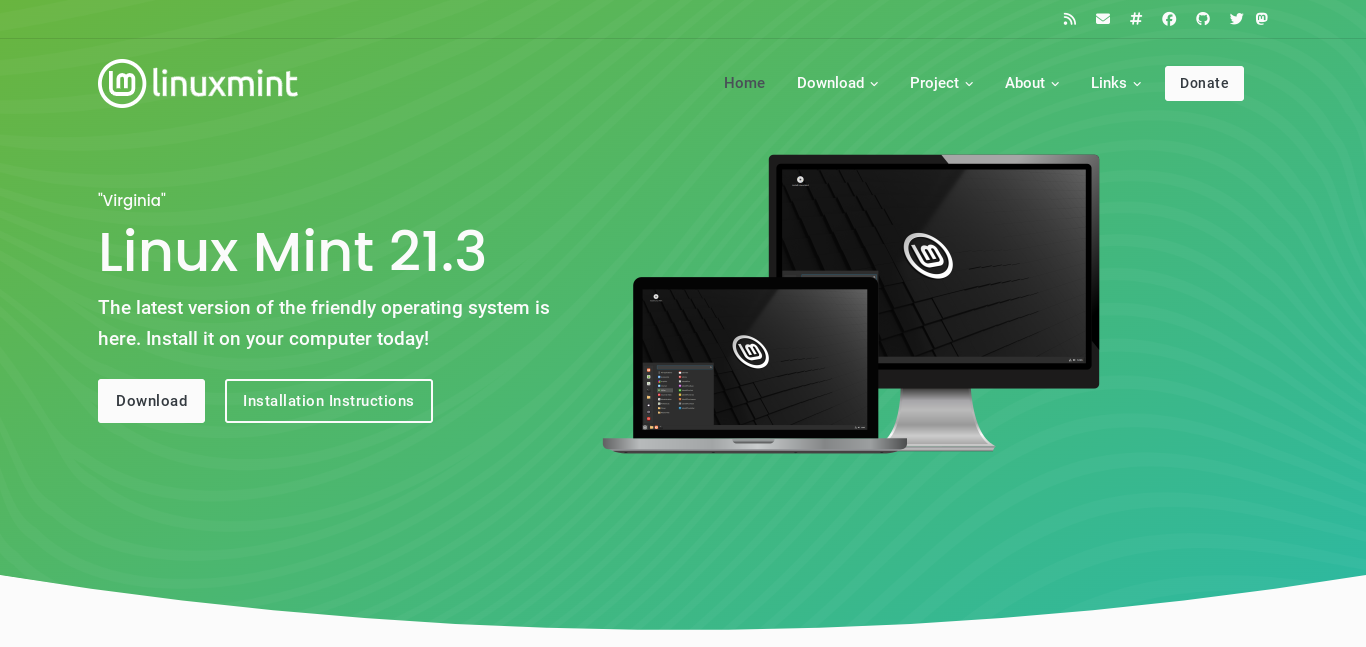
Linux Mint is a stable, easy-to-use desktop Linux system. It’s built on Debian and Ubuntu, making it familiar to novices and experts. Linux Mint, with its Cinnamon desktop, is powerful and customisable.
Features
- User-friendly interface.
- Stability and reliability.
- Based on Debian and Ubuntu.
- Cinnamon desktop environment.
- Customization options.
SUSE Studio
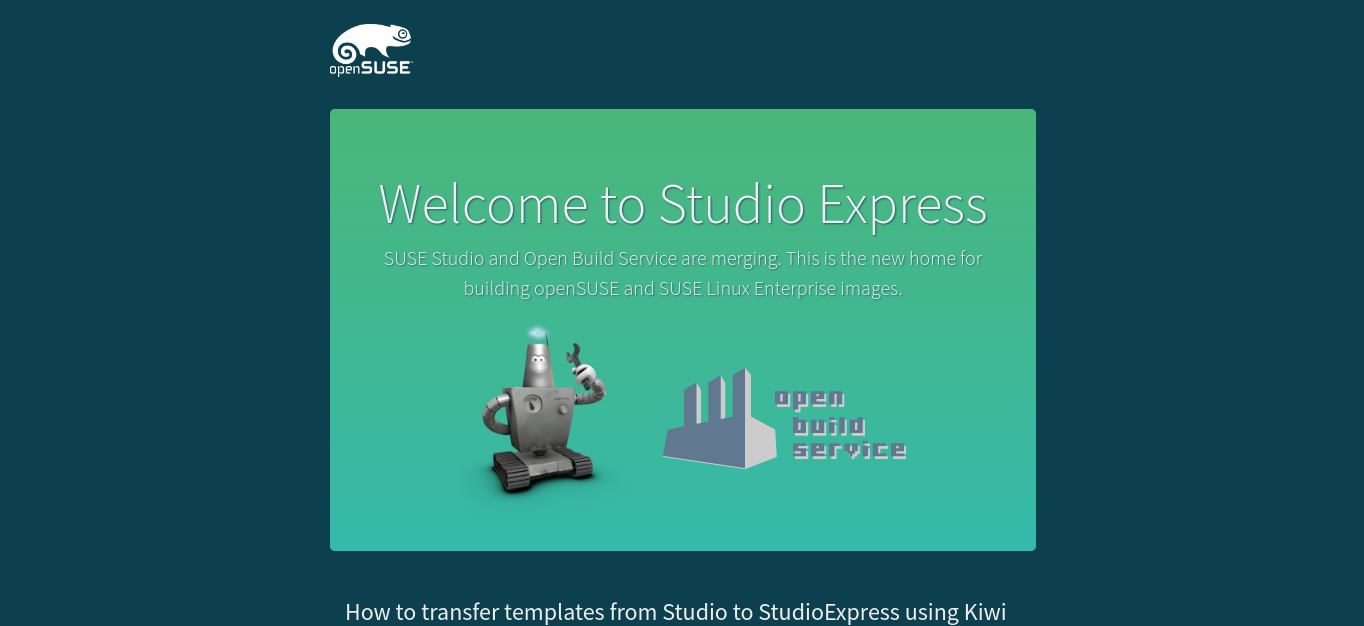
SUSE Studio modernises infrastructure with SUSE Linux Enterprise Server, OpenStack Cloud IAAS, and software-defined storage. It serves enterprises seeking trustworthy and scalable Linux solutions.
Features
- Modernizes infrastructure.
- SUSE Linux Enterprise Server.
- OpenStack Cloud technology.
- Software-defined storage.
- Business-focused solutions.
SmartWindows.app
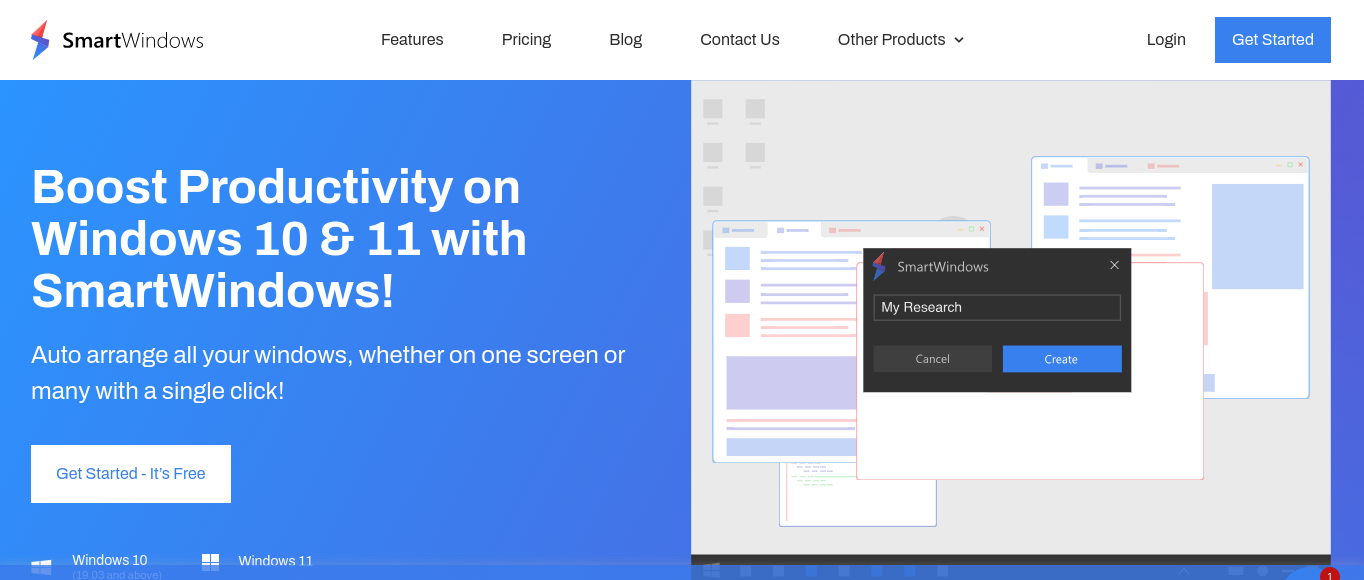
Productivity utility SmartWindows.app simplifies desktop administration. The ability to auto-arrange program windows with a click improves workflow, especially for users with many active apps on one or more screens.
Features
- Window arrangement automation.
- Single-click functionality.
- Efficient desktop management.
- Available on a freemium model.
- Enhanced productivity.
Ubuntu
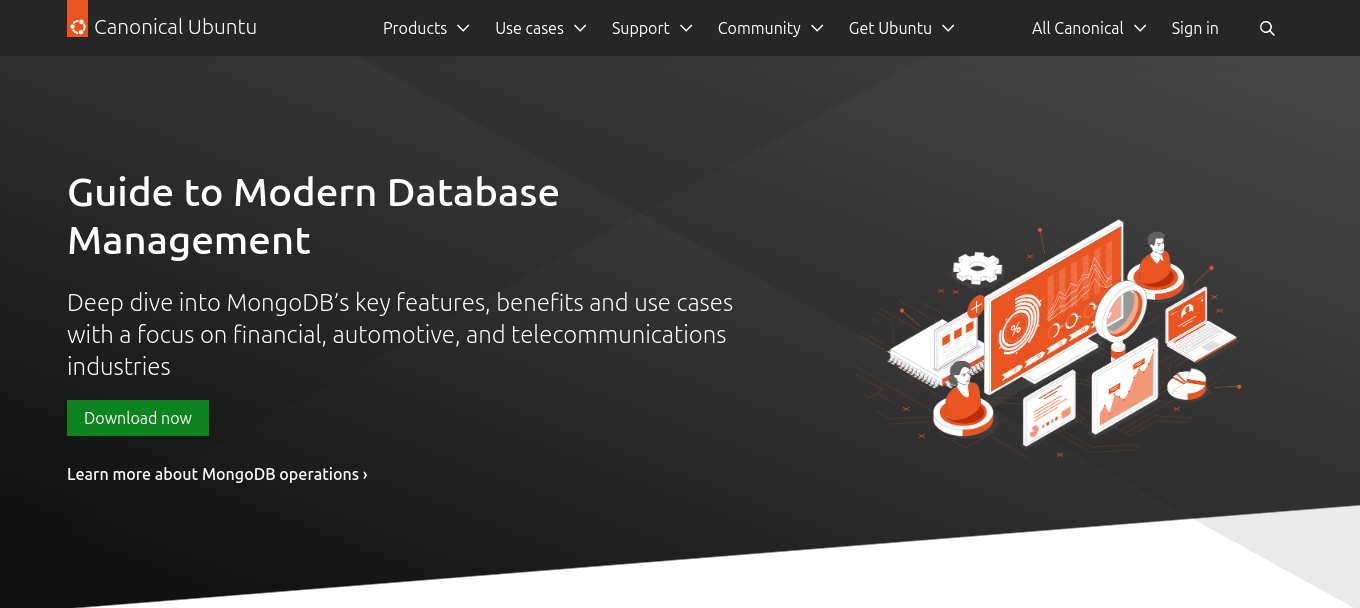
Ubuntu is a free and open-source operating system that runs on Debian Linux and has a robust community. It offers desktop computing that is safe and reliable. Both consumers and corporations find Ubuntu to be popular.
Features
- Linux-based Debian system.
- An open-source operating system.
- Emphasis on desktop computers.
- Strong community backing.
- Security and stability.
CrunchBang Linux
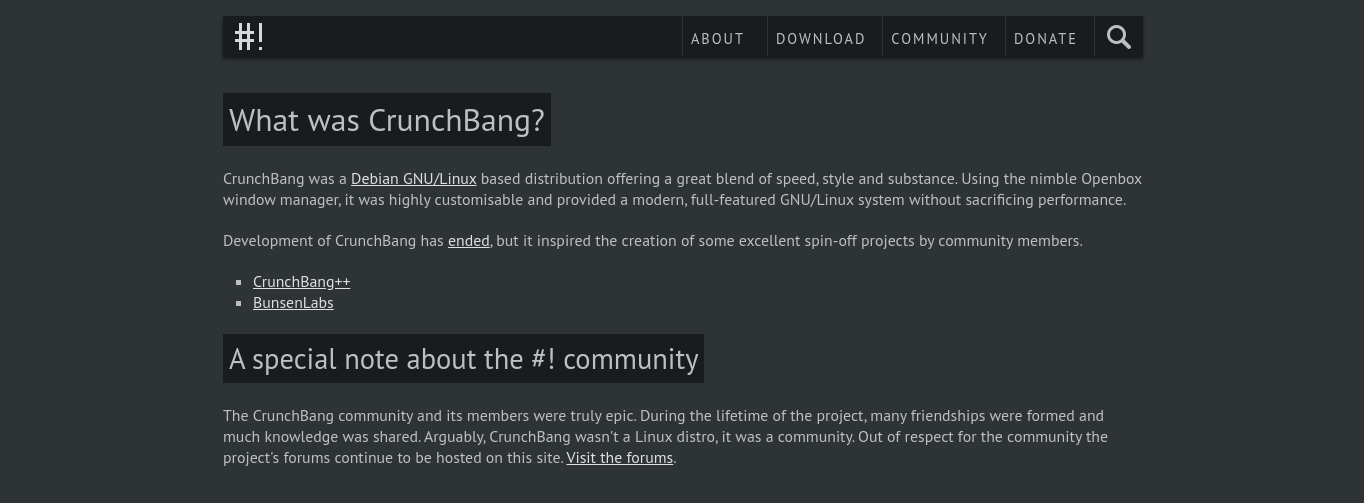
CrunchBang Linux is a simple Linux system built on the Debian platform. Its speedy and lightweight system is perfect for those who wish to reduce the complexity of their computer experience without sacrificing functionality.
Features
- Distribution based on Debian.
- Focus on minimalism and simplicity.
- Swift and light-weight.
- A more efficient user interface.
- Economical use of resources.
Haiku
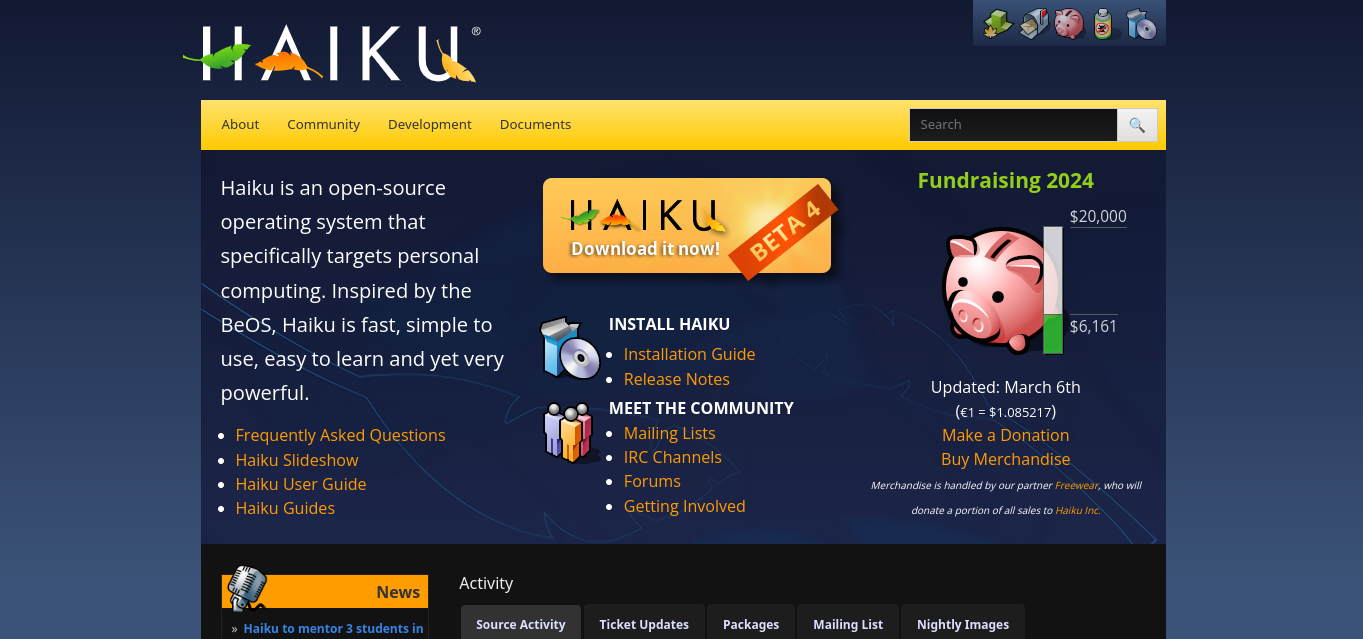
Open-source operating system Haiku is geared for personal computers. Haiku emphasizes resource economy and simplicity to offer a responsive and user-friendly environment, drawing inspiration from BeOS.
Features
- Open-source OS for personal computing.
- Inspired by BeOS.
- Responsive and user-friendly.
- Simplistic design.
- Efficient use of system resources.
Fuduntu
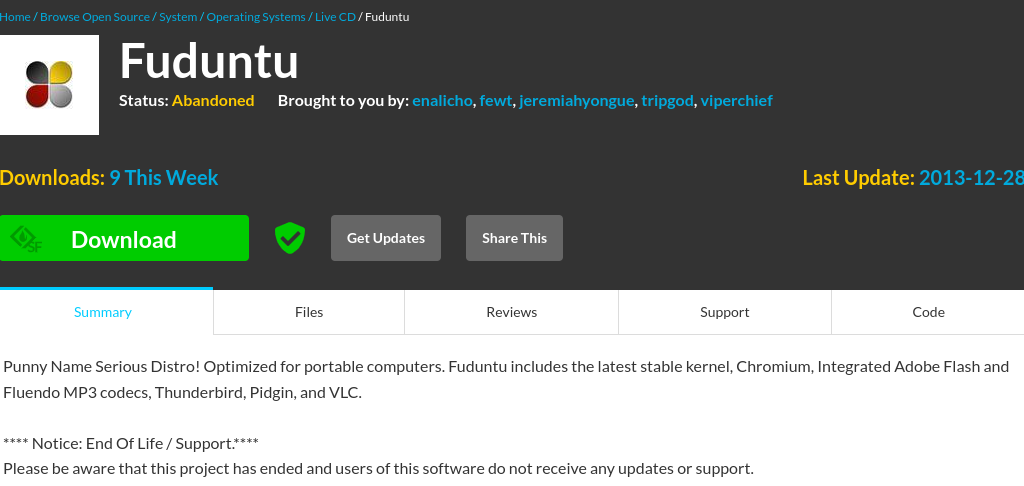
Fuduntu, an open-source software distribution, is an altered variant of Fedora operating system. It attempts to offer an intuitive experience, with a focus on non-traditional features. A Linux system called Fuduntu combines the greatest aspects of Fedora with even more customization possibilities and ease of use.
Features
- Remix of Fedora OS.
- User-friendly experience.
- Out-of-the-box functionality.
- Focus on ease of use.
- Open-source distribution.
Lubuntu
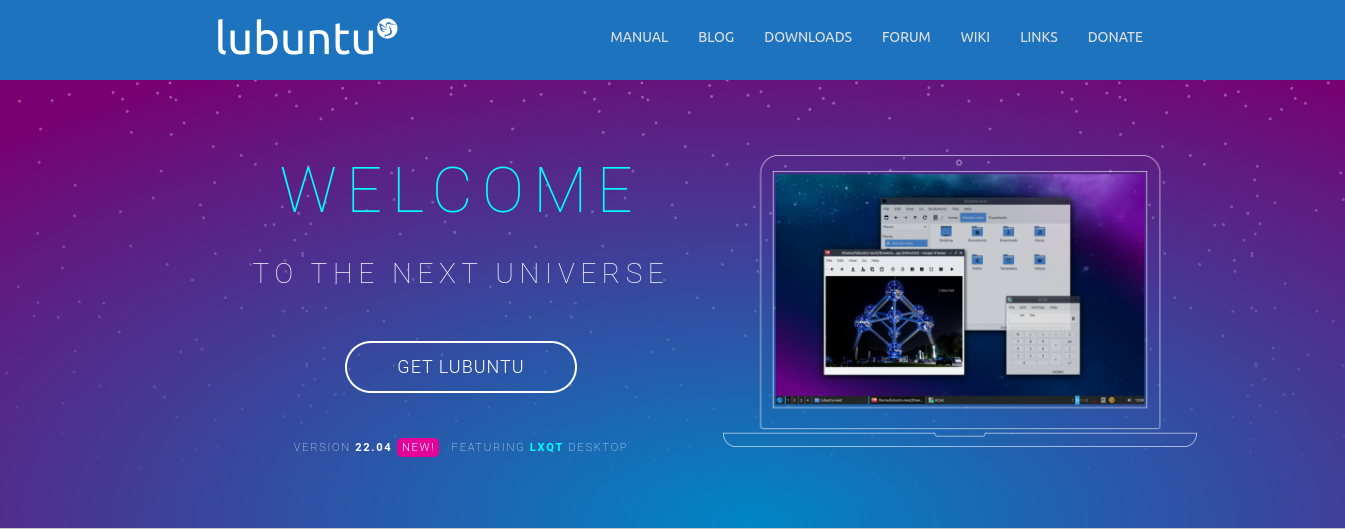
The Lubuntu operating system is known for its speed, small footprint, and intuitive design. Based on Ubuntu and Linux, Lubuntu is a great option for people who want a fast system on low-powered hardware because it employs the basic LXDE desktop environment.
Features
- Lightweight and fast.
- Clean and easy-to-use interface.
- Based on Linux and Ubuntu.
- LXDE desktop environment.
- Suitable for low-resource hardware.
Xubuntu
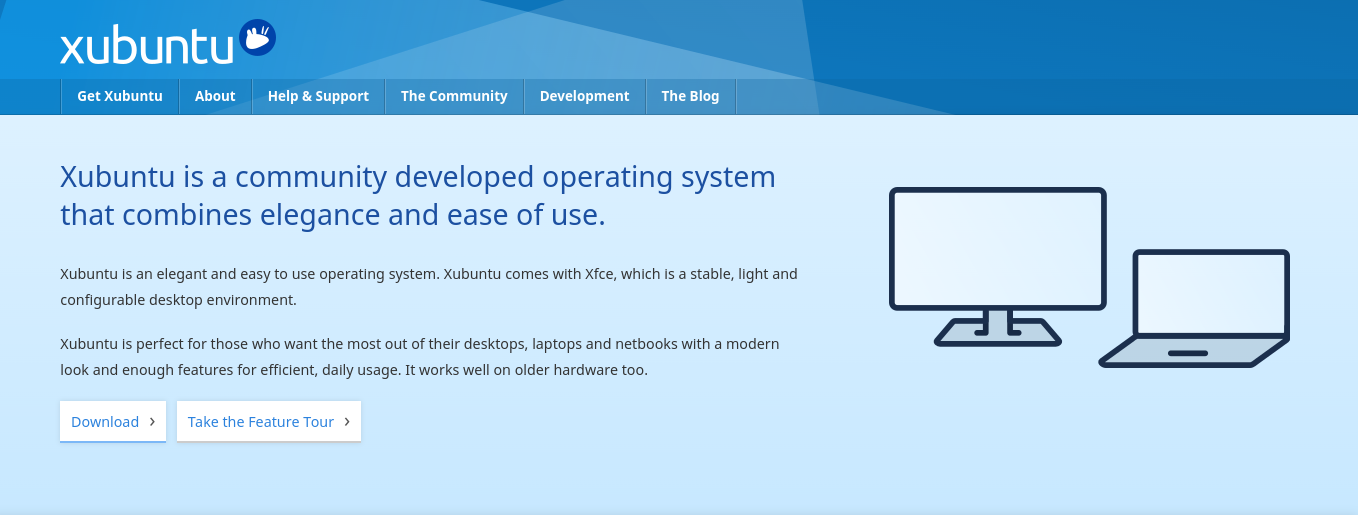
Elegant and user-friendly, Xubuntu uses Linux and Ubuntu. The XFCE desktop environment balances system resource economy and usefulness. Xubuntu suits light desktop users.
Features
- Elegant and user-friendly.
- Based on Linux and Ubuntu.
- XFCE desktop environment.
- Balances functionality and efficiency.
- Customization options.
DeLicate Linux
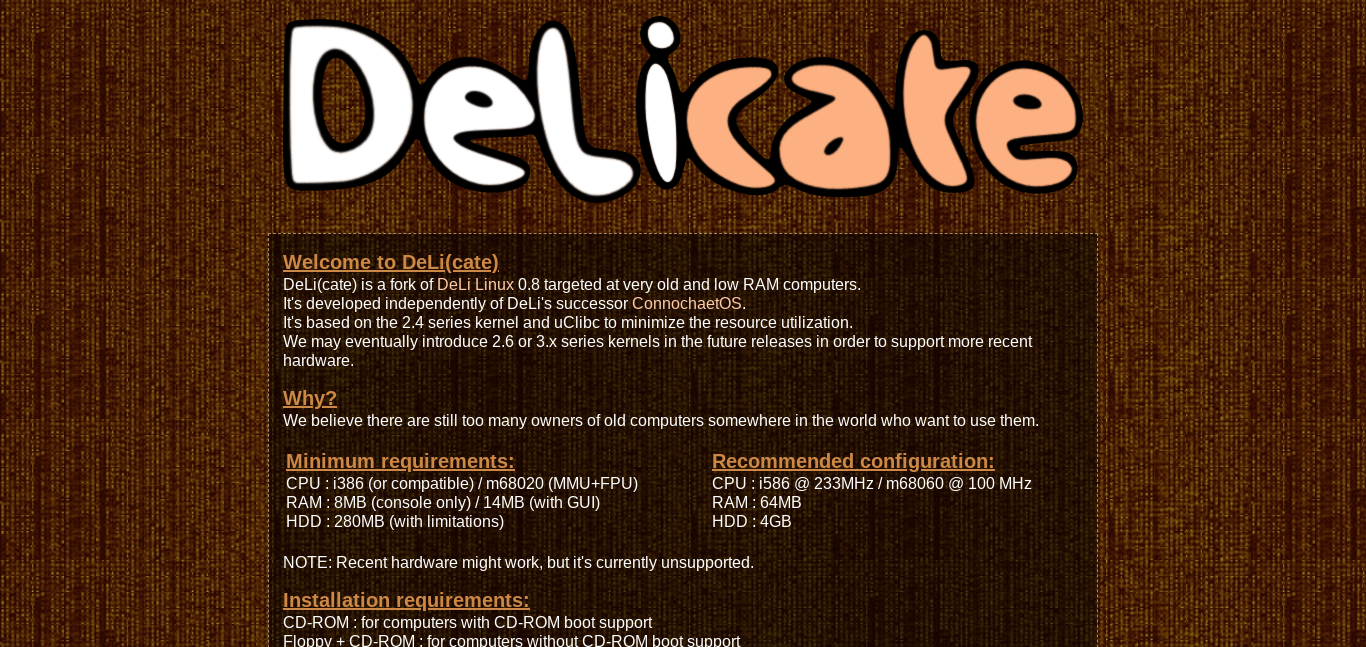
DeLicate Linux is a free, lightweight Linux Kernel-based OS for low-RAM systems. It provides critical functionality while using fewer resources, making it ideal for older or weaker hardware.
Features
- Free and lightweight.
- Linux Kernel-based OS.
- Designed for low RAM computers.
- Essential functionality.
- Resource-efficient.
Enso OS
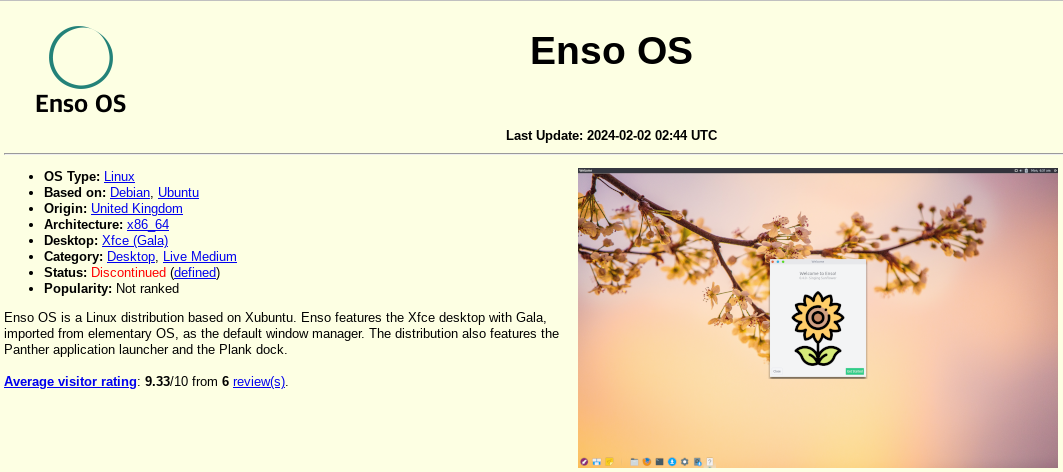
Clean and simple Enso OS incorporates select Linux community projects. It focuses on simplicity and beauty to make it easy to use. Enso OS is for those who want simple, attractive desktops.
Features
- Clean and simple OS.
- Integration of Linux community projects.
- Easy-to-use experience.
- Visually appealing.
- Straightforward desktop environment.
SUSE Linux Enterprise

SUSE Linux Enterprise is a reliable and interoperable enterprise Linux distribution. SUSE Linux corporate, the first corporate Linux vendor, provides dependable and secure operating systems for varied IT settings.
Features
- Enterprise-grade Linux distribution.
- Reliability and interoperability.
- Original provider of enterprise Linux.
- Business-focused solutions.
- Stable and secure.
OpenMandriva Lx
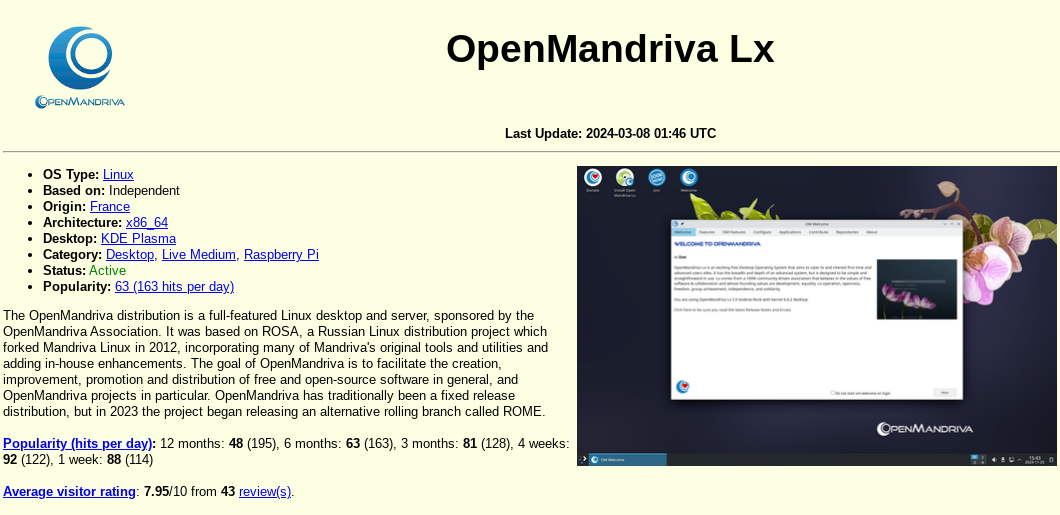
Desktop Linux distribution OpenMandriva Lx is based on Mandriva Linux. It emphasises simplicity and utility for a user-friendly experience. OpenMandriva Lx suits people who value simplicity and power.
Features
- Desktop Linux distribution.
- Derived from Mandriva Linux.
- User-friendly experience.
- Balance of simplicity and functionality.
- Suitable for various users.
Regolith Linux
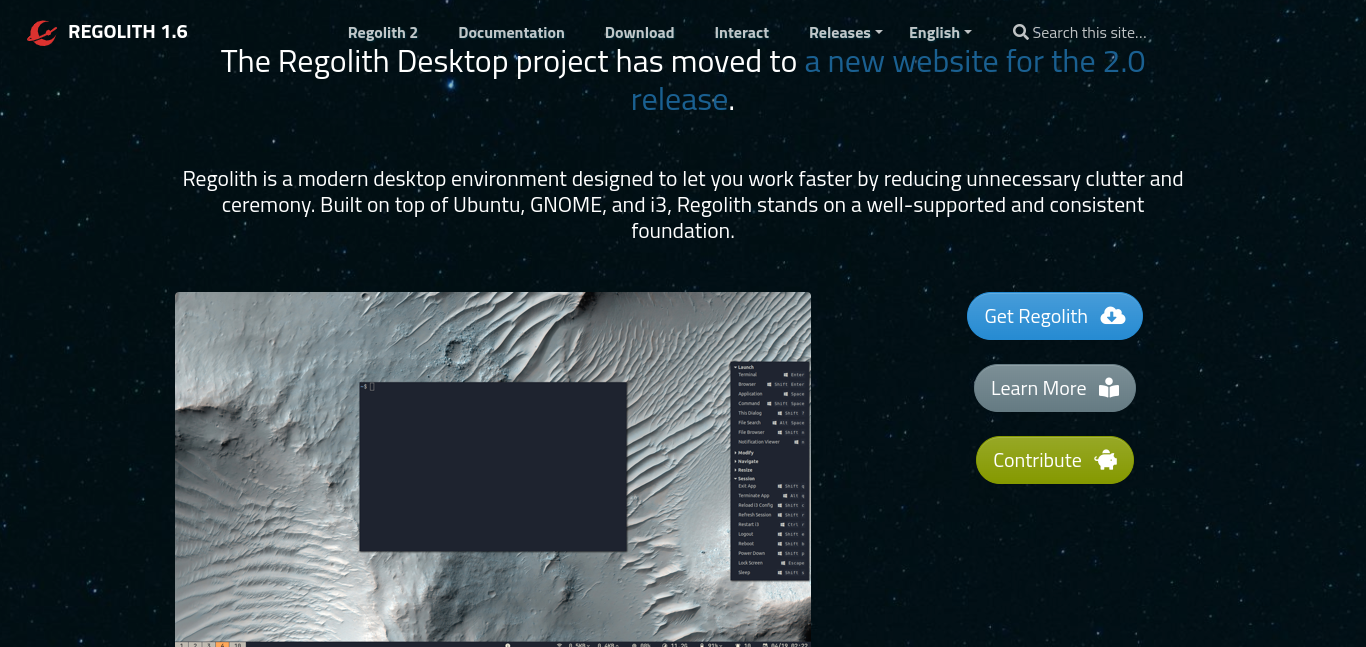
Ubuntu-based Regolith Linux uses a customised i3 window manager desktop interface. It balances customisation and usability for tiling window managers users who want efficient window organisation.
Features
- Ubuntu-based distribution.
- Customized i3 window manager.
- Tiling window manager for efficiency.
- Balances customisation and usability.
- Suitable for advanced users.
TinyCore
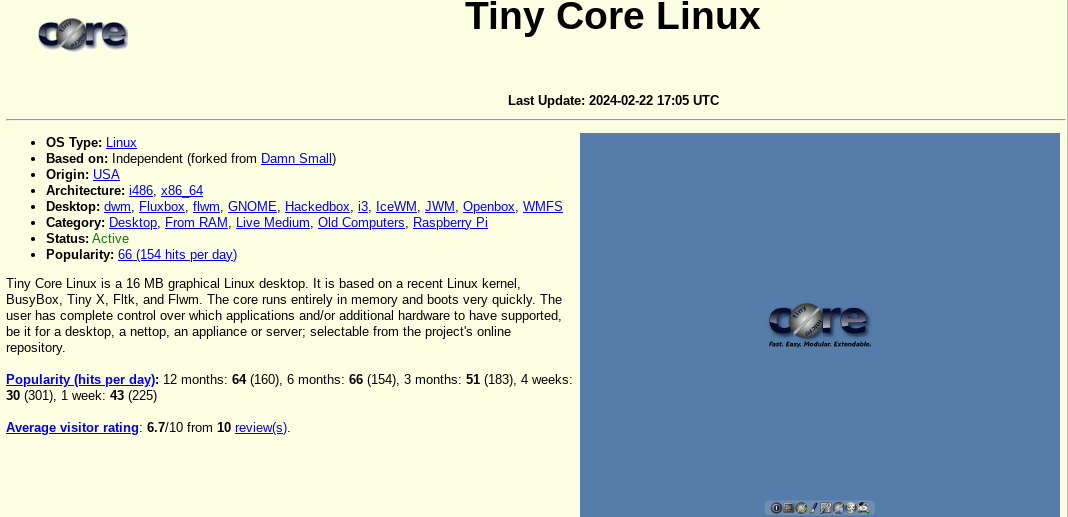
TinyCore is a small Linux-based OS that loads everything into RAM. using its basic design, TinyCore is lightweight and customisable using “modules.” It is perfect for users who want a simple, resource-efficient solution.
Features
- Simple operating system.
- Linux-based with “modules.”
- Loads everything into RAM.
- Customizable.
- Ideal for low-resource systems.
Pearl OS
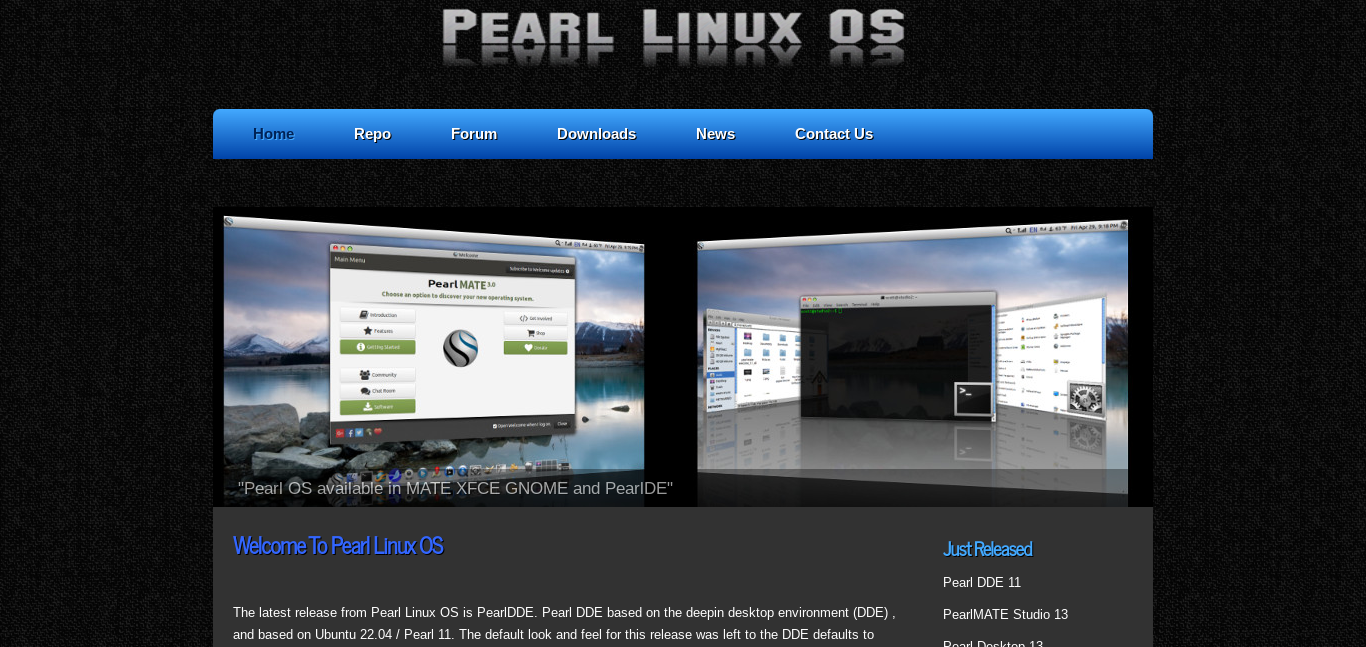
Pearl OS is a free Mac OS X alternative based on Linux. It combines Linux functionality with a macOS-like desktop experience for people switching. Pearl OS is good for Linux users who enjoy macOS.
Features
- Mac OS X alternative for Linux.
- Familiar desktop experience.
- Free and open source.
- Visually appealing interface.
- Distinctive Linux features.
Plop Linux
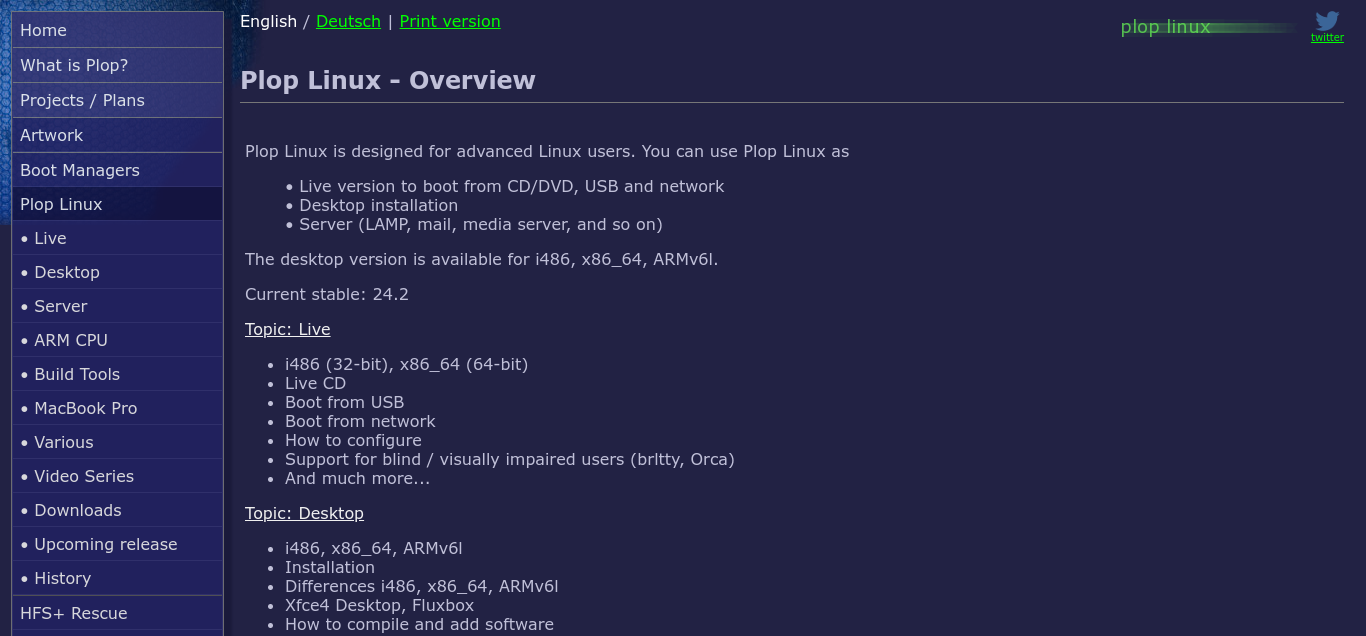
Plop Linux is a tiny, custom distribution that boots from CD, DVD, and USB flash drives. Its simplicity and adaptability make it ideal for lightweight and portable Linux users.
Features
- Small distribution built from scratch.
- Bootable from CD, DVD, and USB.
- Emphasis on simplicity and versatility.
- Lightweight and portable.
- Suitable for various uses.
FatDog64o
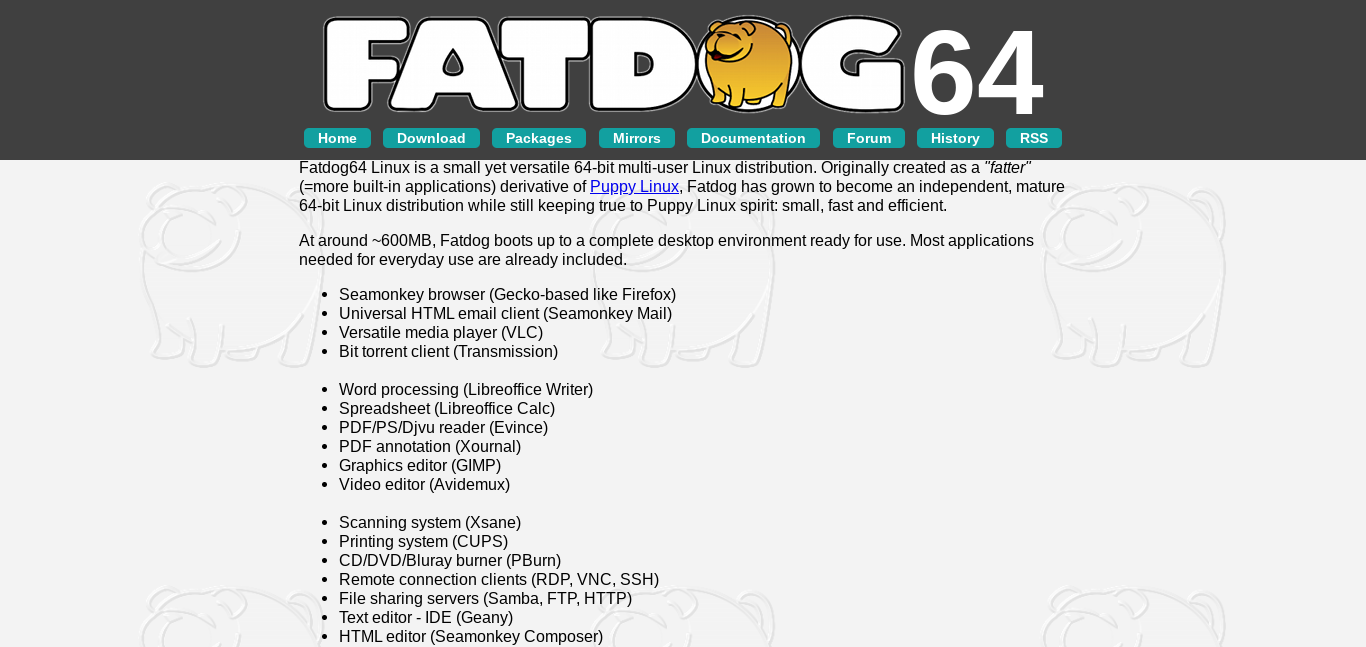
The lightweight 64-bit multi-user Linux distribution FatDog64 is optimised for speed. It’s suited for older and newer PCs because it’s responsive and supports contemporary technology.
Features
- Lightweight 64-bit distribution.
- Multi-user support.
- Emphasis on efficiency and performance.
- Suitable for modern hardware.
- Responsive system.
KolibriOS
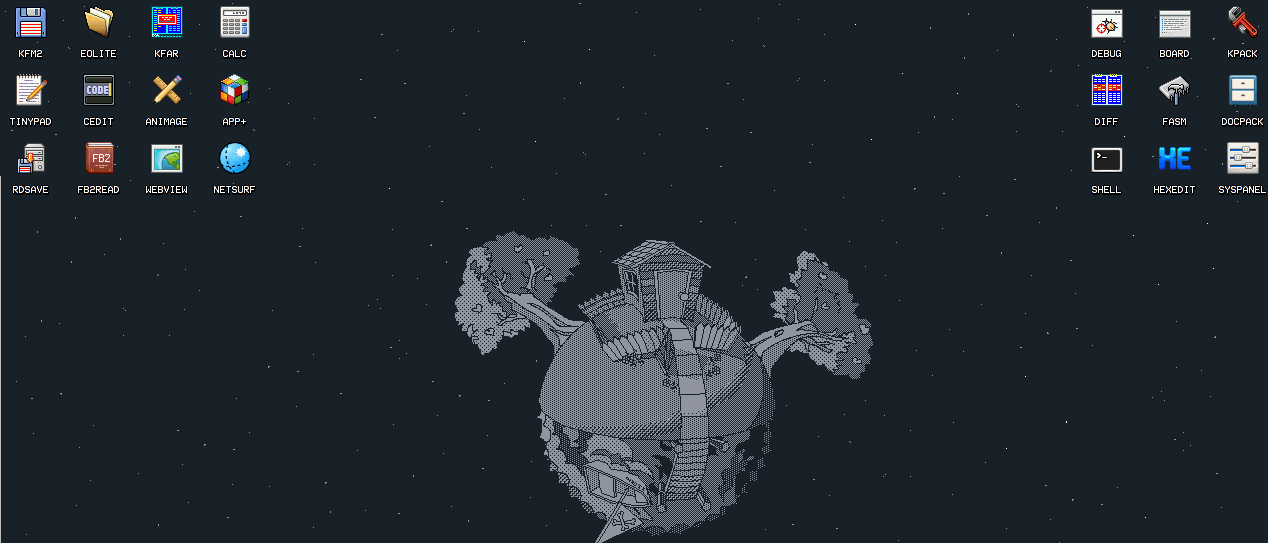
Description: KolibriOS is a small, quick, and minimalistic OS. KolibriOS is fast and efficient, making it ideal for users who want a lightweight system with full functionality.
Features
- Tiny and fast operating system.
- Minimalistic design.
- Efficient use of system resources.
- Suitable for lightweight environments.
- Powerful for its size.
DebianDog
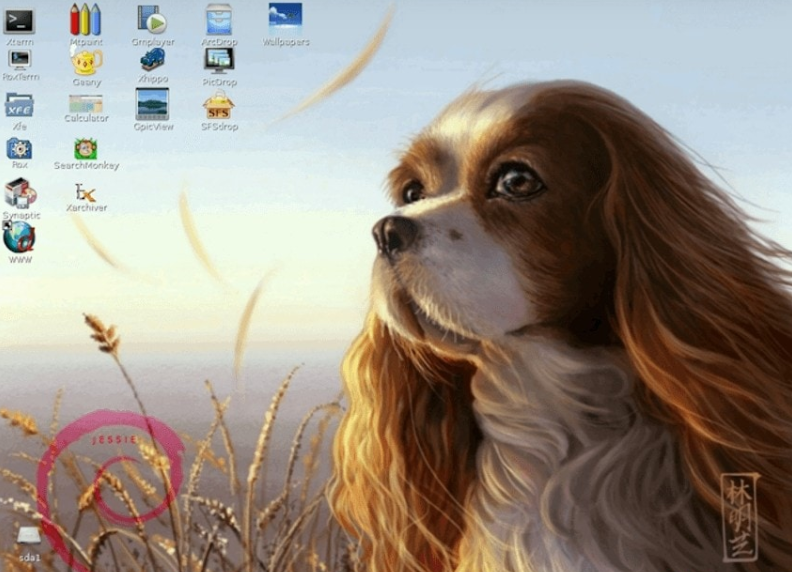
A compact Debian Live CD called DebianDog mimics Puppy Linux. DebianDog, which combines Debian’s features with Puppy Linux’s user-friendliness, is customisable and lightweight, making it appropriate for older hardware.
Features
- Small Debian Live CD.
- Resembles and functions like Puppy Linux.
- Customizable and lightweight.
- Suitable for various use cases.
- Ideal for older hardware.
Which one is the best?
Linux Mint is popular for its dependability, usability, and community support. Earlier OS users will recognise Linux Mint’s Cinnamon desktop and UI. Ubuntu and Debian-inspired design gives novices and veterans confidence in its performance. Multiple multimedia apps and codecs make Linux Mint enjoyable right out of the box. The dedicated update manager and software centre simplify system updates and software installation, increasing user experience. Due to its large and active community, users may easily find advice and resources for difficulties or customisation, increasing its popularity. Linux Mint is a great Linux distribution for reliability and simplicity due to its customer service, clean design, and sturdy performance.
Methodology
DistroWatch alternatives had to be carefully chosen to balance Linux distribution representation. Wide acceptability, use, dependability, and community support were important. Multiple users and active communities indicate reliability and continuous progress, thus they were selected. The alternatives offered varied features, desktop settings, and use cases to suit diverse user preferences. We designed the interfaces simple, stable, and fast to make Linux newbies’ experience pleasant. To demonstrate the open-source ecosystem’s diversity, the list includes both popular and niche distributions. Users may choose a Linux distribution that meets their needs and interests by assessing user ratings, reviews, and the latest updates for reliable information.

